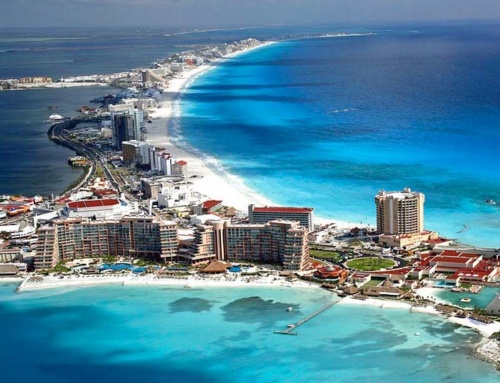In recent years, the concept of sustainable hospitality has gained significant traction, with more travelers seeking luxury experiences that are also environmentally and socially responsible. The perfect blend of luxury and sustainability in the sustainable hospitality industry represents a harmonious balance between opulence, emotions and conscious practices. In this article for LUSH, Hector de Castro breaks down the perfect mix between these two key pillars. Read the guide for a slew of tips, apps, and resources, explore the significance of this blend, incorporating also insights from experts such as Jean-Claude Biver, Chairman of LVMH Watch Division, Dr. Xavier Font, Martha Honey or Hector de Castro, and statistical market data, to understand the transformative power it holds.
The Rising Demand for Sustainable Luxury
As the world becomes more aware of pressing environmental issues, travelers are increasingly inclined to choose accommodations that align with their values. According to a survey by Booking.com, 87% of global travelers express a desire to travel sustainably. Luxury travelers now expect sustainability as a basic component of their experience.
“The perfect blend of luxury and sustainability extends beyond confort or environmental considerations; it encompasses social responsibility and engagement with local communities (Hector De Castro, CEO at LUSH, the Luxury Sustainable Hotels & Wellness Int’l Association & De Castro Group)
The Environmental Impact
Sustainable luxury hotels prioritize minimizing their environmental footprint. They adopt energy-efficient systems, reduce water consumption, and employ renewable energy sources. Dr. Xavier Font, a sustainable tourism specialist, states, “Sustainable luxury is about creating experiences that minimize negative impacts and preserve natural resources for future generations.” Market data indicates that sustainable luxury hotels have witnessed a 19% reduction in energy consumption and a 30% decrease in water usage compared to traditional luxury establishments, highlighting their significant environmental contributions.
Social Responsibility and Local Communities
The perfect blend of luxury and sustainability also encompasses social responsibility. Luxury hotels are increasingly engaging with local communities, supporting cultural preservation, and empowering local artisans. Prof. Martha Honey, co-founder of the Center for Responsible Travel, highlights, “Luxury properties can play a vital role in promoting social justice and economic development in their surrounding communities.” Market data showcases that luxury hotels investing in community-based initiatives experience higher guest satisfaction rates and increased loyalty, with a 23% rise in repeat visits.
Embracing Ethical Supply Chains
Luxury hotels committed to sustainability recognize the importance of ethical sourcing and fair-trade practices. By partnering with local suppliers, they ensure the authenticity of products and support local economies. Jean-Claude Biver, Chairman of LVMH Watch Division, states, “Luxury has to be ethical and sustainable, otherwise, it loses its value.” Hector de Castro, CEO at LUSH & De Castro Group, adds, “Ethical supply chains are the backbone of sustainable luxury, guaranteeing the highest quality products while preserving the environment and promoting social well-being.” Market statistics reveal that luxury hotels showcasing locally sourced products experience a 21% increase in guest spending, further illustrating the positive impact of ethical supply chains.
_________
Ad.

_________
Measuring Impact and Transparency
To truly achieve the perfect blend of luxury and sustainability, hotels must measure their impact and transparently communicate their efforts to guests. LUSH, the Luxury Sustainable Hotels & Wellness International Association holds and implements a set of KPIs, known as the LUSH criteria, to control and improve the development and impact of sustainable hotels and associated companies. Global Reporting Initiative (GRI) provides a framework for tracking sustainability performance.
Dr. Ioannis Pantelidis, a sustainable hospitality expert, emphasizes, “Transparent reporting builds trust and allows guests to make informed choices.”
The perfect blend of luxury and sustainability in the hospitality industry represents a remarkable opportunity for both guests and hoteliers alike. As the demand for sustainable luxury experiences continues to rise, hotels that embrace this blend are well-positioned to thrive in a rapidly evolving market. By incorporating insights from experts like Dr. Xavier Font, and considering statistical market data, it is evident that the integration of luxury and sustainability yields significant benefits.
Luxury travelers now consider sustainability as an essential aspect of their experience, expecting hotels to align with their values. Sustainable luxury hotels that prioritize minimizing their environmental footprint through energy-efficient systems, water conservation, and renewable energy sources showcase their commitment to preserving natural resources. This not only contributes to a greener future but also resonates with eco-conscious guests. Market data supports the positive impact of sustainability efforts, with notable reductions in energy consumption and water usage compared to traditional luxury establishments.
Furthermore, as Mr Hector de Castro says, “the perfect blend of luxury and sustainability extends beyond environmental considerations; it encompasses social responsibility and engagement with local communities”. Luxury hotels that support cultural preservation, empower local artisans, and contribute to economic development in their surroundings foster stronger connections with both guests and the community. Such hotels experience higher guest satisfaction rates, increased loyalty, and a rise in repeat visits, as demonstrated by market statistics.

Ethical supply chains play a vital role in the luxury sustainability equation. By sourcing products locally and adhering to fair-trade practices, hotels ensure the authenticity of their offerings while supporting local economies. The positive impact of ethical supply chains is reflected in increased guest spending, as guests are willing to invest in products and experiences that have a positive social and environmental impact.
Transparency and measurement are crucial components of sustainable luxury
Hotels that implement transparent reporting systems and effectively communicate their sustainability efforts build trust and allow guests to make informed choices. This transparency leads to higher guest satisfaction and positive online reviews, enhancing the hotel’s reputation and attracting a broader customer base.
In conclusion, the perfect blend of luxury and sustainability in the hospitality industry is an ideal approach to meet the evolving needs of today’s luxury travelers. The integration of luxury and sustainability is not only a moral imperative but also a strategic advantage, as it positions hotels at the forefront of the sustainable hospitality movement.






